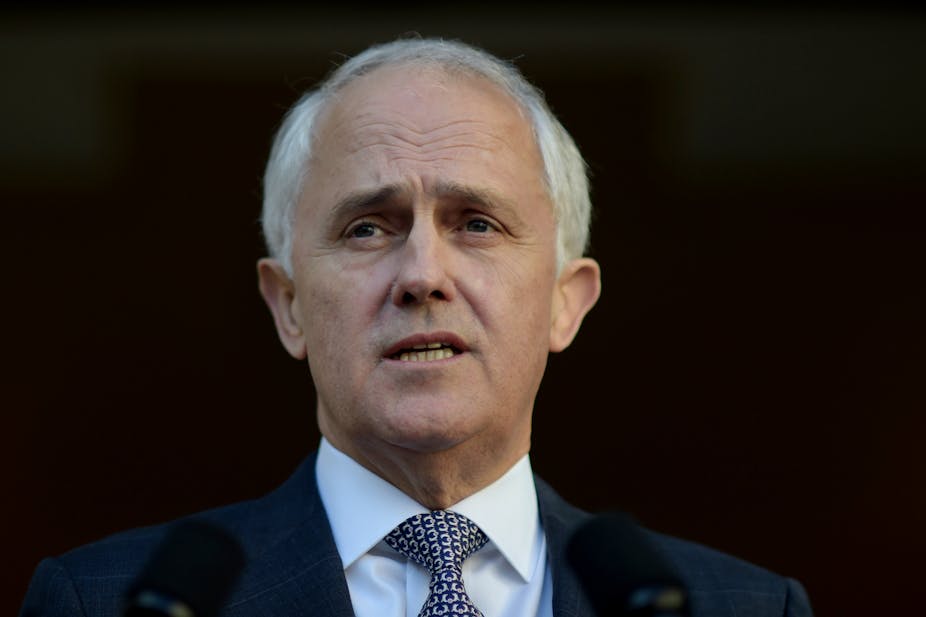Malcolm Turnbull has five women in his new cabinet, including the nation’s first female defence minister, in a reshuffle that cuts a swathe through the Abbott ministry to promote massive “renewal”.
Cabinet ministers who are out are Senate leader Eric Abetz, Defence Minister Kevin Andrews, Industry Minister Ian Macfarlane, Small Business Minister Bruce Billson, as well as Joe Hockey.
Hockey, who was to lose treasury, told Turnbull that he did not want a ministerial post and would not stay in parliament.
Sources say Hockey is likely to become the next Australian ambassador to Washington.
His departure is set to create a byelection in his safe seat of North Sydney. Hockey said in a statement: “For the sake of my young family - to whom I owe so much - I have decided to bring my parliamentary career to a close”.
As widely predicted, Scott Morrison becomes the new treasurer.
Marise Payne, who has been human services minister, has been elevated to defence and cabinet, in one of the biggest surprises in the changes. She will oversee both the coming white paper and the controversial submarines procurement.
Christopher Pyne moves sideways from education to become minister for industry, innovation and science, where Turnbull said he would be at the centre of “one of our most important agendas” for Australia to remain a prosperous first-world economy. Pyne’s department would drive the government’s focus on promoting science, technology, engineering, mathematics, and start-ups, bringing together innovation initiatives right across government.
Turnbull described his team as “a 21st-century government and a ministry for the future”.
Apart from the existing women in cabinet – Julie Bishop and Sussan Ley – and the addition of Payne, the other female cabinet members will be Kelly O'Dwyer, who moves from her current parliamentary secretary position to become assistant treasurer and small business minister, and Michaelia Cash, who takes employment. She will also be minister for women – previously she was minister assisting the prime minister for women.
With the dropping of Abetz, Attorney-General George Brandis becomes Senate leader and Finance Minister Mathias Cormann takes over as deputy Senate leader. Both remain in their existing portfolios.
Arthur Sinodinos, former chief-of-staff to John Howard, will be cabinet secretary.
Josh Frydenberg moves into cabinet as minister for resources, energy and and northern Australia. Peter Dutton has stayed in immigration, while Jamie Briggs has been given a newly created post of minister for cities and the built environment, in the broader environment portfolio, which is retained by Greg Hunt.
Mitch Fifield gets communications, which Turnbull held, and joins cabinet. He also takes arts from Brandis.
Christian Porter, a former West Australian treasurer, becomes social services minister and goes from being a parliamentary secretary into cabinet.
Turnbull has renamed the posts of parliamentary secretary – the lowest level of the frontbench – to be called assistant minister.
The new education minister is Simon Birmingham, who also joins cabinet. He will take over responsibility for child care, which is being moved from the social services portfolio.
Mal Brough becomes special minister of state and minister for defence materiel and science. Michael Ronaldson, who has been special minister of state and veterans affairs, is out of the ministry.
Andrews said he was disappointed he was being dropped. “My remaining in this job was not about me it was all about the stability of our Defence Force in Australia and its leadership,” he said in a news conference held before Turnbull’s announcement. Abetz also said he was disappointed not to be included in the new ministry.
Billson was offered an outer ministry job but declined it.
Turnbull said Macfarlane and Ronaldson, who were both friends of his, were each ready to continue to serve in their current positions but had given him the opportunity to use their spots to bring in new talent.
Turnbull said that one of the great challenges for any leader was “to ensure that there is renewal. That we do, we are able to bring up new talent, new faces, into leadership positions over time”.“


